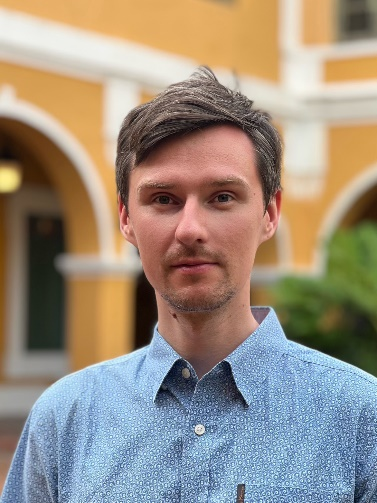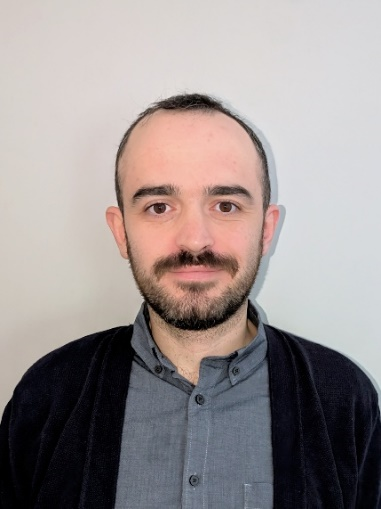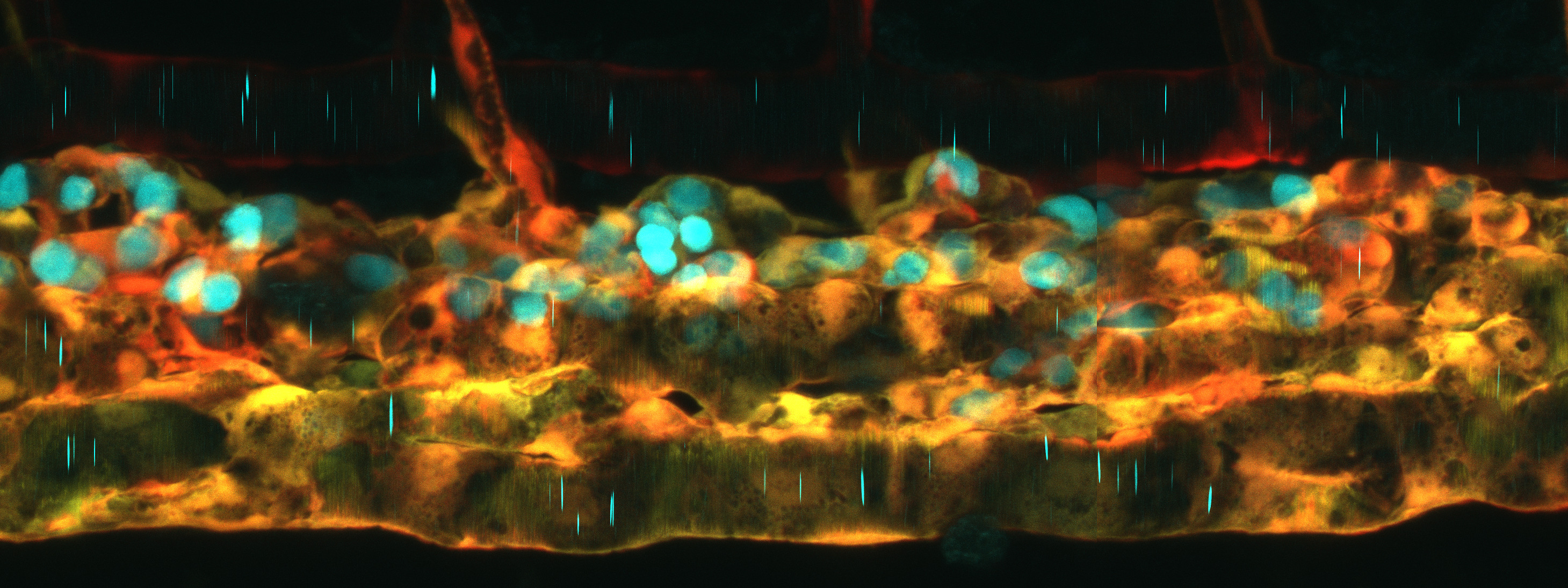IZFS Webinars
About | Upcoming Webinars | Previous Webinars | Sponsors | Sponsorship Opportunities
In April 2020, the International Zebrafish Society (IZFS) launched the IZFS Webinar Series. The series includes a variety of research and professional development topics. The content of the webinars is designed for researchers from every career level and to share the latest scientific findings, methods, technologies, and products to facilitate research. The format provides direct access to experts in the field in an interactive online setting.
Webinar registration is free to all IZFS members. Non-members may participate in each webinar for a fee of $25.00 USD. To register for webinars, please click here. If you have never been a member and would like to join, please click here. If your membership has lapsed and you would like to renew to participate in the webinars, please click here.
Upcoming Webinars
Young PIs, from RNA–protein interactions to the dynamics of vertebrate segmentation
Presented by the Canadian Research Community
Featuring Dmitry Kretov, PhD and Muhammed Simsek, PhD
June 19, 2025
10:00am - 11:00am EDT | Find your time here

RBPscan: a novel approach to study RNA–protein interactions in zebrafish
Dmitry Kretov, PhD
Adjunct Professor
Department of Molecular Biology, Medical Biochemistry, and Pathology
Faculty of Medicine
Université Laval
Twitter/X: @dmitrykretov1
Bluesky: @dmitry-kretov.bsky.social
RNA-binding proteins (RBPs) play a key role in post-transcriptional regulation of gene expression during early zebrafish development. However, accurately and quantitatively characterizing RBP binding to their mRNA targets has remained challenging due to technical limitations of existing approaches. To address this, we recently developed RBPscan, a massively parallel reporter assay that harnesses RNA editing to quantitatively measure RNA–protein interactions directly in vivo. RBPscan does not rely on UV crosslinking, protein purification, or antibodies, enabling high-throughput, multiplexed analysis of RBP binding with a wide dynamic range in a native cellular context. We successfully applied RBPscan in early zebrafish embryos to perform de novo motif identification of several RBPs with diverse binding specificities. Additionally, using Pumilio as a test case, we demonstrated the quantitative capabilities of RBPscan. Moreover, we showed that RBPscan can be used to detect microRNA activity, as well as RBP binding to long non-coding RNAs. In summary, RBPscan is a novel approach for studying RNA–protein interactions, particularly well-suited for use in zebrafish embryos. Thanks to its simplicity and versatility, it has the potential to significantly advance our understanding of post-transcriptional regulatory networks during early development and to serve as a valuable tool for the zebrafish research community.

Deciphering cell signal dynamics for sequential segmentation of vertebrate embryos
Muhammed Simsek, PhD
Assistant Professor
Department of Biology
Department of Physics and Astronomy
McMaster University
Bluesky: pbodslab.bsky.social
LinkedIn: mfsimsek
Vertebrates, from zebrafish to humans, pattern their early embryo axis via sequential segmentation of mesoderm tissue into somites. Somites bud off from the anterior end of the tail mesoderm as bilateral tissue blocks, a process timed with a molecular oscillator, the segmentation “clock”. On the other end, cells ingress into the tail mesoderm driving embryo axis elongation. As the embryo elongates mesoderm cells get displaced off the tail bud and abort their fgf transcription. This leaves behind a trace of degrading fgf RNA, establishing downstream ERK activity gradient from tail towards somites. Earlier work had addressed how mesoderm cells are informed by the “clock” for robust segmental patterning. A conserved mechanism between fish and mammals, oscillatory and graded ERK activity along the tissue, was found to be instructive for sequential segmentation. Genetic and pharmacological perturbations revealed that the segmentation clock post-translationally inhibit ERK activity by stabilizing its phosphatases to create the ERK signal gradient oscillations. Imitating clock’s impact on Fgf signalling with drugs resulted in successful segmentation in clock mutant zebrafish embryos. Our current studies expand on this, focusing on design principles of Fgf signalling wiring. Here, I will present how time-controlled perturbations, multi-modal in vivo imaging techniques, and biophysical in silico modelling can facilitate mechanistic understanding of cellular decision-making and tissue patterning. Our lab is funded by NSERC Discovery Grant, and CFI John Evans Leaders Fund.
Previous Webinars
For a complete list of our archived webinars, please click here
Current members may access the recorded webinars by logging into the "members-only" portal
Webinar Sponsorship Opportunities
This educational format provides a unique opportunity for potential sponsors to connect with the most influential group of fish researchers in a virtual setting. The content of the webinars is designed to attract researchers from every career level and to share the latest scientific findings, methods, technologies and products to facilitate their research work. With this virtual format, sponsors not only have exposure to attendees accessing the live webinars, but additional exposure and continued visibility as webinars are archived on the IZFS website and available to members to view on demand.
Explore the Sponsorship Opportunities Here
Please reach out to Alyssa Gluth at agluth@izfs.org with any questions.




